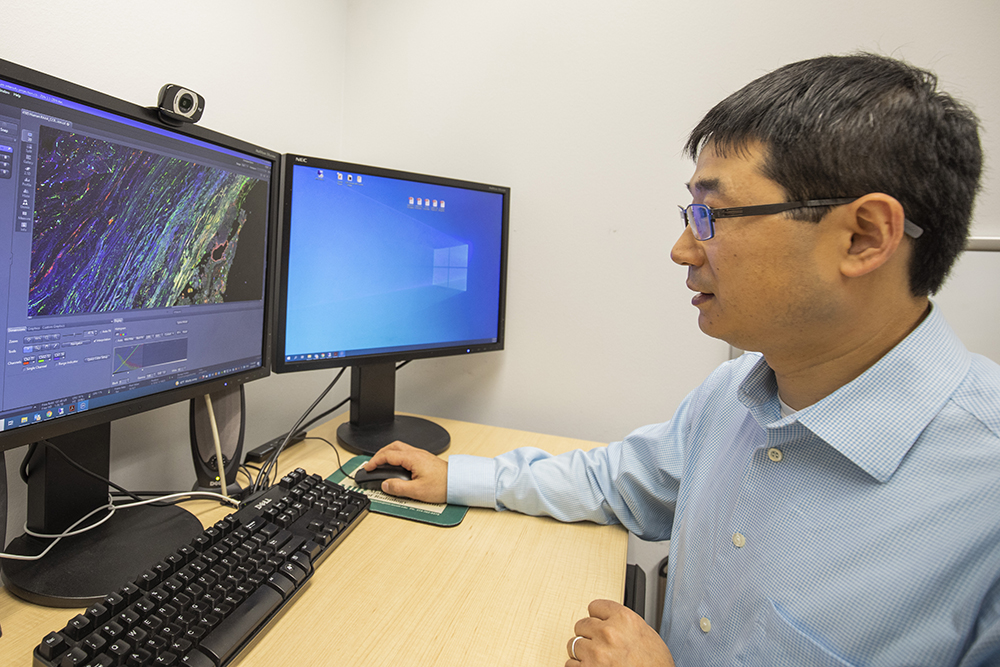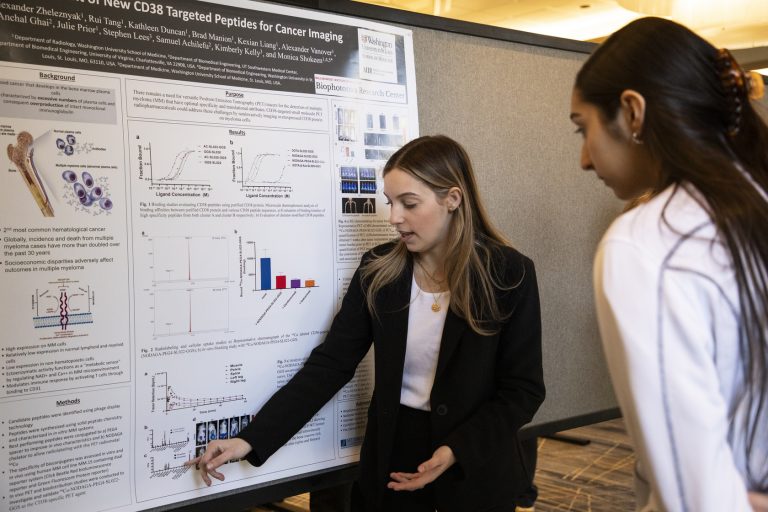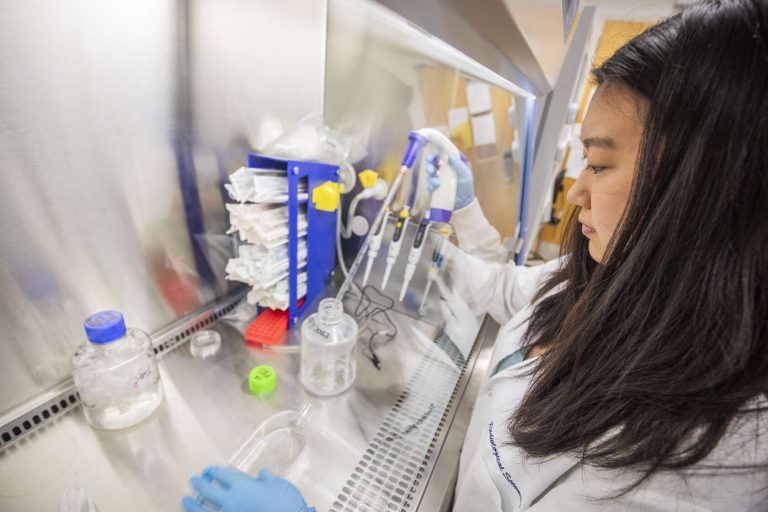Liu Lab
Projects
Targeted Molecular Probes for Atherosclerosis Imaging and Therapy
Goal
The Liu Lab will develop novel imaging agents targeting chemokine receptors and other disease-relevant targets in atherosclerosis and assess their potential for translation. The success of this program will not only build an “imaging tool box” for atherosclerosis, but also a model of probe development and translation for broader applications to other diseases within the NHLBI mission.
PET Detection of CCR2 in Human Atherosclerosis
Goal
Our objective is to perform the initial evaluation of the imaging performance of [64Cu]DOTA-ECL1i in humans with peripheral carotid and femoral arterial atherosclerosis and obtain key biological information that is foundational for the design of future studies to assess its capability for diagnosis, prognosis assignment and evaluation of new therapies.
CCR2 Targeted Molecular Imaging and Treatment of Abdominal Aortic Aneurysms
Goal
This project addresses the absence of a reliable diagnostic modality and medical therapy to prevent abdominal aortic aneurysm (AAA) growth and rupture in patients, leading to high mortality in those over the age of 65.
Novel CCR2 PET for Pancreatic Cancer Imaging and Prediction of Response to Standard and CCR2-Targeted Therapy
Goal
The goal of this project is to evaluate whether tumor uptake of 64Cu-DOTA-ECL1i correlates with tumor expression of CCR2, response to standard chemotherapy and CCR2-targeted therapy in patients with pancreatic adenocarcinoma.
Molecular Imaging CCR2 Lung Inflammation and Fibrosis
Goal
This project addresses the challenge of caring for patients with a class of lung disease called idiopathic pulmonary fibrosis, which has short survival and few therapeutic options. Our group has developed a new radiotracer that can be used in a positron emission tomography (PET) scan to image specific inflammatory cells called CCR2+ monocytes that are considered to be pathogenic in pulmonary fibrosis.
The Inflammatory-Fibrosis Axis in Adverse LV Remodeling: Translating Mechanisms into New Diagnostics and Therapeutics
Goal
This program involves cellular, preclinical and human studies to delineate and detect the molecular mechanisms underpinning the inflammation-fibrosis axis in adverse left ventricular remodeling.
PET Radiotracer Translation and Resource Center (PET-RTRC)
Goal
The PET-RTRC aids in radiotracer design, development, training and use for research groups throughout the country who are studying molecular and cellular processes of interest to facilitate the development and dissemination of novel PET radiotracers on a national scale.

Our People
The lab, led by Yongjian Liu, PhD, includes researchers focused on radiotracer development, inflammation imaging and cancer radiotherapy.



